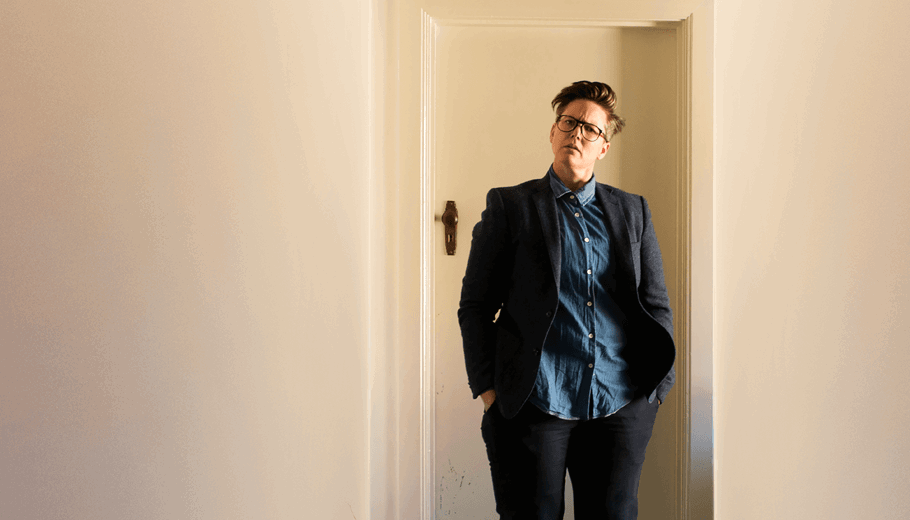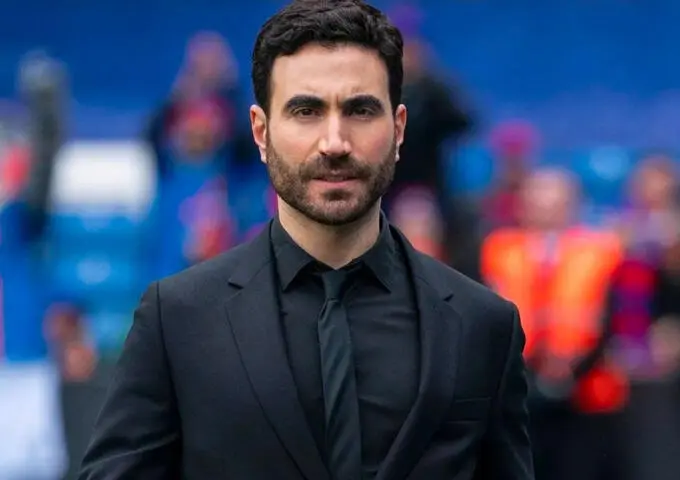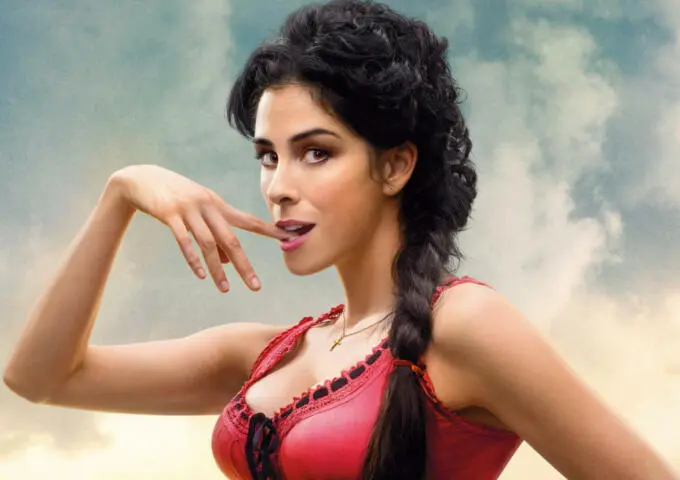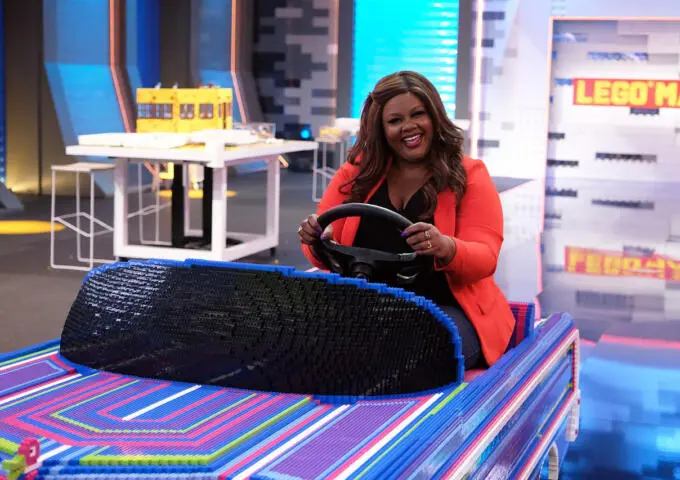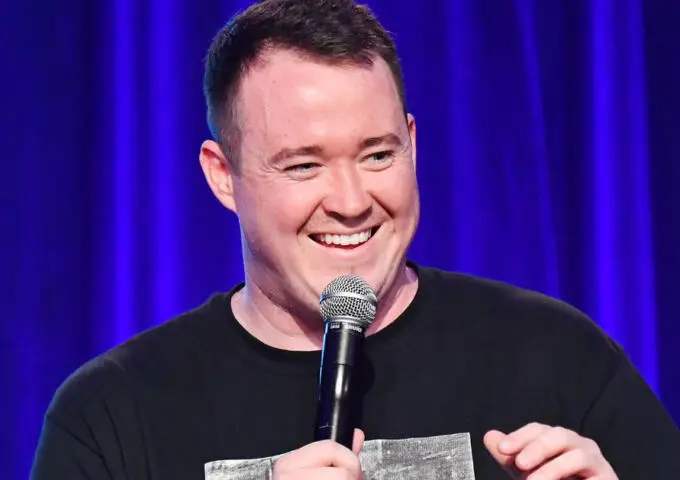The woman who created the most talked-about, argued-about and thinkpiece’d-about comedy special of 2018 has a new show, and she’s bringing it to the Kimmel Center later this month.
“Nanette,” a years-in-the-works stage show from Australian comedian Hannah Gadsby, was produced as a Netflix special that debuted last year. And once it did, the special got rapturous reviews. It also led to a great deal of discussion, about what Gadsby discussed in “Nanette,” as well as whether it should be considered a comedy special at all.
In “Nanette,” Gadsby talked about many things-her queer identity, her status as an abuse survivor, and famous men, from Vincent Van Gogh to Louis C.K., accused of very bad acts against women. And while the hour-long “Nanette” began with standard jokes and punchlines, it soon segued into some heartfelt and very heavy monologues, which included Gadsby openly musing about whether she should quit performing comedy.
A year later, Gadsby is still a comedian and has a new show, called “Douglas,” that she’s bringing to the Kimmel Center June 23, ahead of another Netflix special of the same name that’s scheduled to debut in 2020. The show marks Gadsby’s first time performing in Philadelphia.
Philadelphia Weekly spoke to Gadsby recently about “Nanette,” ‘Douglas,” and what she thought of critics who think her work can’t be considered comedy.
Tell us a little about the new show and what we can expect from it.
“Douglas” is a lot more fun for both me and the audience, so that’s good. I am still challenging the form of comedy, and what people can expect from a comedy. If you could say I punched a hole in comedy [with “Nanette”], then “Douglas” is playfully continuing that job.
You’re currently on tour with this new show?
I am. I started in March, and I kicked off in Australia, because if the show’s gonna be a flop, best to find out at home.
So I understand the name “Douglas” comes from the name of something in the female anatomy-do I have that correctly?
The show is named after my dog. But there is resonance to… there are some Douglas situations in the female reproductive environment [The Pouch of Douglas.] There’s a Scottish doctor in the 18th century who decided to put his name on a few bits and bumps and so I explore that a little.
You mentioned your dog. Is the same dog from the end of “Nanette?”
I’ve got two dogs. I say I’m guilty about naming the show after one, and the other disappearing into obscurity. But I don’t think they care.
You talked in “Nanette” about quitting comedy. And obviously, you’re still at it. Is that something you were seriously considering or was it more of a device?
It was a device. It was meant to sort of challenge people in their expectations of what comedy is, you know, I knew that the show I had written was going to make people uncomfortable, and when people are uncomfortable, there are different ways they respond, and one of the ways I knew people would respond is to reject their discomfort, by qualifying my claim as comedy.
So I thought, I’ll just dethrone myself before I get going so that particular attack on my work becomes redundant. Of course, people who wanted to attack my work didn’t understand that their attack was redundant, so they attacked me anyway. But also, during the course of performing “Nanette” which was, I will not lie, an incredibly difficult and painful process, when I said I was gonna quit comedy, I really almost thought it was a good idea a lot. So I think that’s why when I said it, it sounded like I very much meant it.
I’m sure you followed a lot of the reaction when “Nanette” came out. First of all, do you feel like people had a good sense of what you were going for, and that the things you were trying to get across were understood by most who watched it?
I am incredibly humbled by what people have found in my work. You know, I thought I was speaking to a very small group of people who have lived my experience. What I did not expect was that so many different kinds of people would find access points in different parts of the show. And also, people who did not before understand my experience-I feel like I broke into something that helped them understand my experience. I did a lot of things in that show that deliberately, I knew what I was doing in a lot of ways, but it was grown much bigger than I anticipated, and that is kind of really great.
There was some debate among people who reacted to the show, people who said – and I know you addressed this in the comedy itself-there were those who asked – is this a standup special? Is this a monologue? Is this a TED Talk? What did you make of that response, and is how your work is categorized something that matters to you?
It doesn’t matter to me, but it is interesting to me as an art history student that people still feel the need to categorize. I think the debate that people are putting into “Nanette” is something that I’m addressing in my new show. And I am putting it into a historical context that sort of [looks at] the inherent elitism, which is ironic in something like comedy to [say] that what you are doing is a form of elitism, in an art form that is famously self-anointed anti-establishment.
You named the show after Nanette, you tell the story at the beginning, that you named the show after someone you met, and of your plan to build the special around them, but you didn’t and actually kept the name anyway. Has anyone come forward claiming to be the actual Nanette?
No. I would be very surprised if Nanette was in any way aware of what was going in, and was in any way aware that it was about there. She was just this person I met very briefly – and when I say meet-she had a name tag, I didn’t, so she wouldn’t necessarily know that she met me. And it was this small little town in Australia, so I don’t think – I’d be very surprised. And when I think of Nanette now, I don’t think of that person.
There were some who reacted to “Nanette” by comparing it to a TED Talk. And then, earlier this year, you ended up doing an actual TED Talk. How did that come about?
That’s just happened because some other people made some decisions. It certainly didn’t happen because critics of “Nanette” suggested that I should do it.
The state of comedy itself today – do you feel like it’s healthy?
Well, the state of the world isn’t healthy, so I don’t think the state of comedy is healthy. I’d like to see fewer people concerned with defining comedy, and more people concerned with what they’re actually trying to say. It’s become almost Machiavellian, people think the purpose of comedy is to laugh, and the ends justify the means, and I don’t believe that’s a healthy way to approach your freedom of speech. I think freedom of speech comes with a responsibility, and I think it’s high time that comedians acknowledged that.
There’s been this debate for many years, where when comedians think they’re being censored, what they’re really saying is that someone criticized them on Twitter.
No, what they’re actually experiencing is a bad feeling. And a lot of those big guys I don’t think to believe they should have to experience bad feelings. So they can strike out and blame the people they believe are responsible for their own feelings. Feelings happen inside of you, and you have to work a lot hard at being reactive.
Hannah Gadsby is performing “Douglas” at the Kimmel Center’s Merriam Theater, for two shows at 5 p.m. and 8 p.m., on Sunday, June 23. Order tickets here.
TWITTER: @STEPHENSILVER
